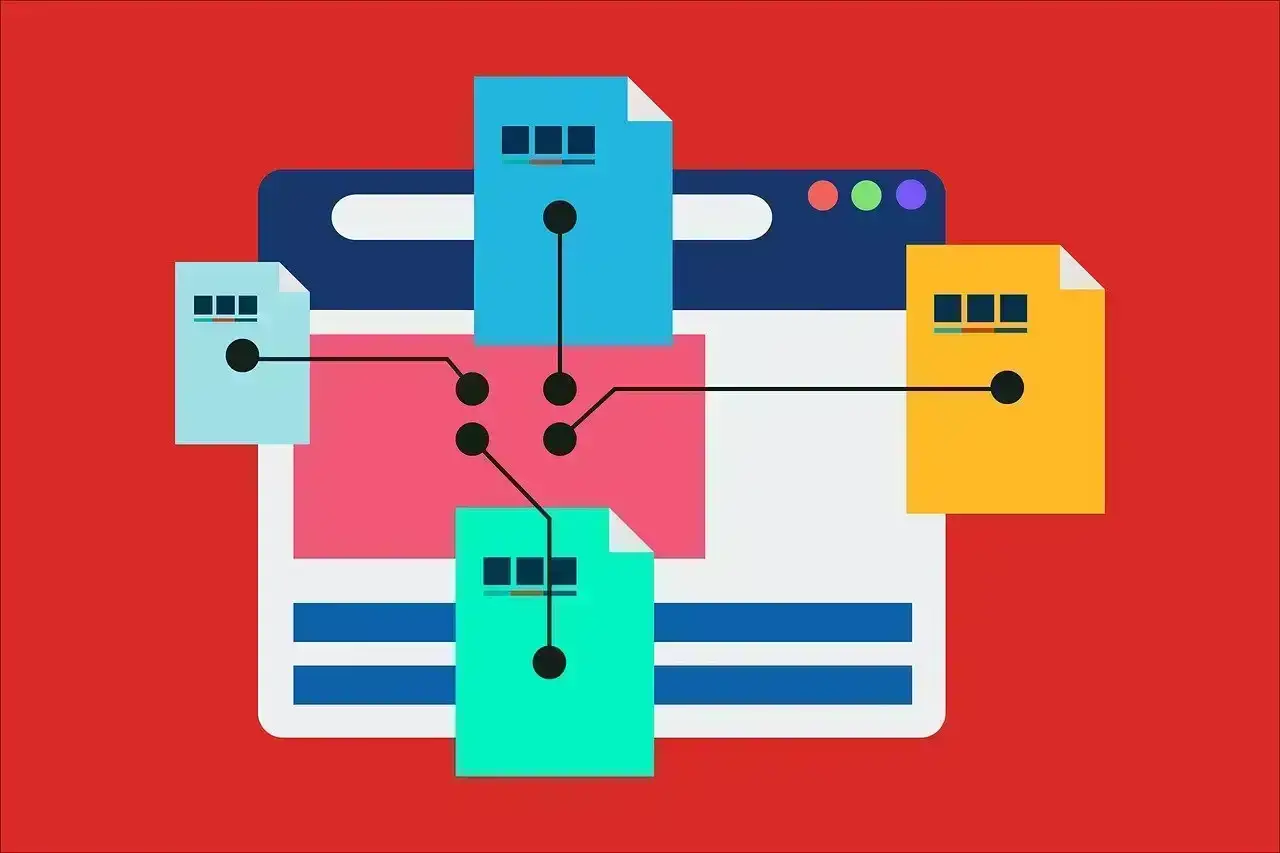
The Entrepreneurial Mindset: Unlocking the Key to Success

What separates a successful entrepreneur from the rest? Is it luck, timing, or access to capital? While all these factors play a role, one of the most critical components of entrepreneurial success is the entrepreneurial mindset. This is not just about having a business idea; it's about cultivating a way of thinking that embraces challenges, learns from failures, and constantly seeks opportunities.
In this in-depth guide, we will explore what the entrepreneurial mindset really means, why it matters, and how you can develop it. Whether you are starting your first side hustle, running a small business, or aspiring to build the next global startup, mastering this mindset will give you the resilience and vision needed to succeed.
What Is the Entrepreneurial Mindset?
The entrepreneurial mindset is a combination of attitudes, behaviours, and habits that enable individuals to identify opportunities, overcome challenges, and pursue growth. It's about more than just running a business -- it's a philosophy of life that applies to decision-making, problem-solving, and leadership.
Key characteristics of this mindset include:
- Resilience: The ability
Recommended for You
- Adaptability: Embracing change and pivoting strategies when necessary.
- Vision: Seeing opportunities where others see obstacles.
- Risk-taking: Calculated risks that lead to innovation and growth.
- Continuous learning: A hunger for knowledge, skills, and improvement.
- Value creation: Focusing on solving problems and providing real benefits to others.
When these qualities combine, they create a mindset that not only drives entrepreneurial ventures but also shapes how one approaches challenges in all areas of life.
Why the Entrepreneurial Mindset Matters in 2025
We are living in an era where traditional career paths are no longer guaranteed. Economic shifts, technological innovation, and global competition demand that individuals think creatively and independently. In 2025, with remote work, AI-driven industries, and gig economies dominating the landscape, the entrepreneurial mindset is not just for business owners -- it's essential for anyone who wants to thrive.
Consider these reasons why cultivating this mindset matters today:
- Job Security is Uncertain: Lifelong employment with one company is rare; adaptability is crucial.
- Innovation is a Necessity: Businesses that don't innovate fall behind quickly.
- Opportunities are Global: Digital platforms allow entrepreneurs to reach worldwide audiences.
- Technology
You Might Enjoy

Impact Of Herbal Medicines On Health And Wellness
Impact Of Herbal Medicines The impact of herbal medicines on health and wellness is significant and…
What does screaming frog do?
Screaming Frog SEO Spider is a powerful desktop application designed for comprehensive technical…
How To Start Earning Money With Toloka
start earning money with Toloka Start earning money with Toloka Toloka is a crowdsourcing platform…
Developing an entrepreneurial mindset equips you with the tools to stay ahead of these changes rather than be overwhelmed by them.
The Core Pillars of an Entrepreneurial Mindset
While every entrepreneur's journey is unique, successful ones often share common pillars in how they think and act. Let's explore these in more detail:
1. Growth Orientation
Entrepreneurs see challenges as opportunities to grow. They are not deterred by failure but use it as a stepping stone. This is often described as having a growth mindset, a term popularised by psychologist Carol Dweck. By believing that skills and intelligence can be developed, entrepreneurs push themselves beyond limits.
2. Opportunity Recognition
An entrepreneurial mindset is always scanning the environment for gaps, inefficiencies, and unmet needs. What others dismiss as problems, entrepreneurs see as business opportunities waiting to be solved.
3. Risk Tolerance
No business is without risk. However, the entrepreneurial mindset embraces calculated risks rather than reckless gambles. This involves research, testing, and managing downside exposure while chasing upside potential.
4. Resilience and Grit
Entrepreneurship is often described as a marathon, not a sprint. Setbacks are inevitable, but resilience allows entrepreneurs to push through failures, rejections, and financial struggles to reach their goals.
5. Value-Driven Thinking
More Reads You’ll Love

Funny Love Languages: How Memes Make Relationships Relatable
Love languages were created to help couples understand how they express and receive love. The five…
Residential and commercial painting companies in Atlanta
Residential and Commercial Painting Companies in Kenya: A Comprehensive Guide Painting is more than…
Importance Of Sitemaps
The Ultimate Guide to XML Sitemaps: Purpose, Limitations, and SEO Benefits Creating a…At its core, entrepreneurship is about solving problems and adding value. Instead of focusing solely on profit, entrepreneurs who thrive long-term create products and services that truly benefit their customers.
How to Develop an Entrepreneurial Mindset
Unlike talent, which may feel innate, the entrepreneurial mindset can be nurtured. Anyone can learn to think more creatively, act more decisively, and approach life like an entrepreneur. It starts with small daily habits that compound into a stronger outlook on opportunities and challenges.
1. Cultivate Curiosity
Curiosity is the fuel of entrepreneurship. It drives you to ask questions like, "Why does this process take so long?" or "What if there's a better way?" By developing a habit of questioning the status quo, you open yourself to innovation.
2. Practice Problem-Solving
Entrepreneurs don't wait for solutions to appear; they create them. Every challenge is an opportunity to test your ability to think creatively. Instead of focusing on why something can't be done, shift your focus to how it could be achieved.
3. Strengthen Emotional Intelligence
Business is as much about people as it is about ideas. Emotional intelligence -- the ability to manage your own emotions and understand others' -- helps in building relationships, negotiating deals, and leading teams effectively.
4. Build Resilience Through Small Challenges
You don't have to wait for a major setback to build resilience. Start by intentionally stepping outside your comfort zone -- pitch an idea, learn a new skill, or test a small
Other Topics That Might Interest You

Watercolour Paint for Professionals
Watercolour Paint for Professionals Why use Watercolour Paint for Professionals? Watercolour paint…

When Your Masterpiece Sells for $5: Funny Art Memes Every Artist Will Relate To
Every artist dreams of creating a masterpiece that garners admiration, respect, and, ideally, a…

Should Search Engines Be Allowed to Crawl Website Themes?
Should search engines Be Allowed to Crawl Website Themes? Should search engines be allowed to crawl…
5. Adopt a Long-Term Vision
Entrepreneurs think beyond the next payday. They plan for months, years, even decades ahead. By setting long-term goals, you stay focused when daily challenges seem overwhelming.
Famous Examples of the Entrepreneurial Mindset in Action
History is filled with entrepreneurs who turned obstacles into opportunities through mindset alone. These examples highlight the traits we've discussed in action:
- Elon Musk: Known for his relentless pursuit of innovation, Musk faced countless setbacks -- from failed rocket launches at SpaceX to production delays at Tesla. Yet, his resilience and vision have made him one of the most influential entrepreneurs of our time.
- Oprah Winfrey: From humble beginnings, Oprah used her mindset of growth and resilience to build a media empire. Her ability to connect with audiences and adapt to changing industries demonstrates entrepreneurial adaptability.
- Richard Branson: Founder of the Virgin Group, Branson embodies risk-taking and opportunity recognition. His ventures span airlines, music, and even space travel -- proof that a bold mindset can lead to diverse successes.
- Local Entrepreneurs: While global icons inspire us, local business owners who survive economic downturns, pivot strategies, and continue serving their communities are living proof of the entrepreneurial mindset in action every day.
Challenges of Building and Maintaining the Entrepreneurial Mindset
Developing the entrepreneurial mindset is not without obstacles. Many aspiring entrepreneurs face resistance -- both external and internal. Here are common challenges and how to approach them:
Fear of Failure
Perhaps the biggest barrier is the fear of failing. Society often stigmatises mistakes, but in entrepreneurship, failure is part of the journey. Each setback provides valuable lessons and increases resilience.
Imposter Syndrome
Many entrepreneurs doubt their abilities, even when they're capable. The key is to focus on progress over perfection. Small wins build confidence and prove that you belong in the entrepreneurial world.
Overwhelm from Uncertainty
Markets change, competition grows, and trends shift rapidly. Entrepreneurs must learn to embrace uncertainty as part of the process. Flexibility and adaptability become your greatest allies.
Balancing Risk and Security
Entrepreneurship often requires leaving behind stable income sources. Balancing calculated risks with financial planning ensures you don't gamble recklessly, but instead move strategically.
Daily Habits That Strengthen the Entrepreneurial Mindset
Mindset is not built overnight. It grows through consistent, intentional habits. Here are some daily practices that can help you cultivate entrepreneurial thinking:
- Morning Planning: Start each day by setting clear intentions. A focused morning routine creates momentum for productivity.
- Continuous Learning: Read industry news, listen to podcasts, or take courses. Staying informed sharpens your decision-making.
- Networking: Connect with other entrepreneurs and mentors. Conversations with like-minded individuals expose you to fresh ideas and accountability.
- Journaling: Reflecting on wins, failures, and lessons helps you track your growth and spot patterns in your thinking.
- Exercise & Wellness: A strong mind requires a healthy body. Physical fitness improves resilience and mental clarity.
Scaling the Entrepreneurial Mindset
Once you've begun developing the entrepreneurial mindset, the next step is scaling it -- not just for personal growth, but for broader impact. Scaling involves expanding your thinking, leveraging networks, and multiplying opportunities to create greater results.
1. Share Your Knowledge
Entrepreneurs who openly share insights build credibility and strengthen communities. Teaching others through blogs, workshops, or podcasts not only helps others but also deepens your own mastery of entrepreneurial principles.
2. Delegate and Empower
One of the biggest mindset shifts entrepreneurs face is moving from "doing everything" to "leading everything." Empowering others to take responsibility frees you to focus on strategy and vision. Delegation is a growth mindset in action.
3. Invest in Systems
The entrepreneurial mindset thrives on creativity, but scaling requires systems. Processes like automation, documentation, and standard operating procedures allow you to maintain quality while expanding reach.
4. Expand Globally
With the digital economy, scaling your mindset means thinking beyond borders. Entrepreneurs who embrace global markets open themselves to more opportunities and diverse perspectives that enrich their decision-making.
Applying the Entrepreneurial Mindset Across Industries
Contrary to popular belief, entrepreneurship is not limited to starting businesses. The mindset can be applied in virtually every sector, fuelling innovation and transformation.
Technology
Tech entrepreneurs drive innovation by questioning old systems and creating faster, better, and more efficient solutions. From artificial intelligence to fintech, those with entrepreneurial thinking are disrupting traditional models.
Healthcare
Entrepreneurs in healthcare use their mindset to bridge gaps in patient care, introduce new technologies, and streamline treatment processes. Startups offering telemedicine and wearable health tech are prime examples of mindset-driven innovation.
Creative Arts
Artists and designers often embrace the entrepreneurial mindset when they turn creativity into sustainable businesses. By recognising opportunities in digital platforms, merchandising, and licensing, they expand beyond traditional art sales.
Education
The educational landscape is constantly evolving, and entrepreneurial educators are reshaping how knowledge is delivered. Online courses, coaching, and skill-specific programmes are all born from recognising market needs.
Finance and Trading
Even in traditionally rigid industries like finance, the entrepreneurial mindset enables traders and analysts to embrace risk management, adapt to market fluctuations, and discover new investment vehicles.
The Future of Entrepreneurship in 2025 and Beyond
The entrepreneurial mindset of the future will be shaped by global trends, technology, and societal shifts. Entrepreneurs must prepare to adapt in these key areas:
1. Digital Transformation
AI, automation, and machine learning are redefining industries. Entrepreneurs who embrace these tools will thrive, while those resistant to change risk being left behind.
2. Sustainability and Ethical Business
Consumers are increasingly conscious of environmental and social issues. Businesses driven by ethical practices, eco-friendly solutions, and social impact will stand out in the marketplace.
3. Remote Work and Global Teams
The rise of remote work has opened access to global talent pools. Entrepreneurs who can effectively lead distributed teams will find themselves at an advantage.
4. Creator Economy
The creator economy continues to expand, empowering individuals to monetise skills, passions, and communities. Entrepreneurs who blend creativity with strategy will find unlimited possibilities in this space.
5. AI-Powered Decision-Making
Far from replacing entrepreneurs, artificial intelligence is becoming a powerful partner. Using data-driven insights allows entrepreneurs to make faster, smarter, and more strategic choices.
Conclusion: The Mindset That Shapes the Future
The entrepreneurial mindset is more than just a skill set -- it is a way of life. It combines resilience, curiosity, adaptability, and long-term vision to create opportunities where others see limitations. Whether you're launching a business, pursuing creative passions, or advancing in your career, cultivating this mindset opens doors to endless possibilities.
In 2025 and beyond, entrepreneurship will be less about titles and more about thinking differently. Everyone who dares to innovate, adapt, and take calculated risks is, in essence, an entrepreneur. By nurturing your mindset today, you prepare yourself not only to survive but to thrive in an ever-changing world.
Remember: the entrepreneurial journey begins not with resources, but with resourcefulness. Your mindset is your greatest asset, and when combined with persistence and vision, it becomes unstoppable.
Key Takeaways
- The entrepreneurial mindset is about resilience, adaptability, and opportunity recognition.
- Developing curiosity, problem-solving, and emotional intelligence are essential steps.
- Challenges like fear of failure and uncertainty are part of the journey -- not obstacles to avoid.
- Scaling the mindset means empowering others, creating systems, and thinking globally.
- In 2025 and beyond, entrepreneurs who embrace technology, sustainability, and creativity will lead the way.
The entrepreneurial mindset is not reserved for the few -- it is available to anyone willing to adopt it. If you're ready to see opportunities where others see problems, you're already on the path.





Comments